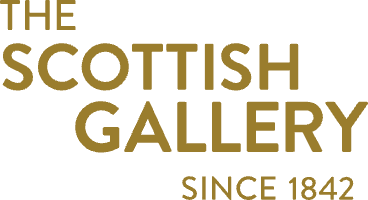Paul Reid

I first became aware of Paul Reid’s paintings when I was a lecturer at Duncan of Jordanstone College of Art in the mid-nineties. As part of the first-year course schedule students were asked to make a self-portrait. I remember being very taken with the small head and shoulders self-portrait that Paul produced. The painting had something of the warmth of colouring of Van Dyck and the cool gaze of Velázquez. It showed a precocious talent with serious intent that said to me that this was someone to watch. In the subsequent four years Paul devoured Max Doerner’s The Materials of the Artist and their Use in Painting. He learned to grind pigments and make a paint that had the desired consistency for his works. At the same time Paul also immersed himself in studying Rubens, Van Dyck, Titian and Velázquez, the artists whose techniques he sought to emulate. Paul was painting wonderfully assured realist still life and thoroughly engaging portraits of family and friends. The still life works and portraits were powerfully realistic with an ease of handling that showed his deep understanding of the language of the Master’s he was studying. It was while studying Rubens that Paul became interested in mythological based works. Through studying the titles and names referred to by Rubens he became aware that they referred to Greek myths. In a sense Paul was led to classical mythology by the process of painting itself. Paul began studying Ovid’s Metamorphoses which opened up a vast subject where he could expand, channel and challenge his formidable powers of realistic painting. Paul’s first classically inspired work was a large painting The Death of Actaeon painted in his fourth year. This was a very significant transitional point for Paul: it was where his portraiture, life room studies and still life knowledge were all pulled together into one large successful composition. It was intriguing at the time to leave his studio and see the faces of the characters of his paintings wandering the art school corridors. Paul’s subsequent ongoing body of mythologically inspired paintings have worked so well because of his powers to instil a potent sense of reality. It is not an arcane or unreachable reality but something timeless and tangible. Characteristic of his subsequent works is his ability to impart a vast amount of information without confusing or distracting the viewer. His paintings overflow with visual material: images of fruit and vegetables, costume, portraiture, human form in action, metamorphosis, landscape, architectural details and still life. All of these elements play a part in his highly orchestrated compositions. Derrick Guild
Paul Reid graduated from Duncan of Jordanstone College of Art in 1998 after which he was awarded a Carnegie Trust Vacation Scholarship and a John Kinross Scholarship. In 2004, he accompanied HRH The Prince of Wales on a trip to Turkey and Jordan, completing a series of paintings and drawings based on the landscape and people they visited; a further visit to Canada with HRH followed in 2009. Paul Reid has immersed himself in the techniques of the Renaissance masters and has found his subjects in the potent imagery of the Greek Myths as recorded in Ovid.



















